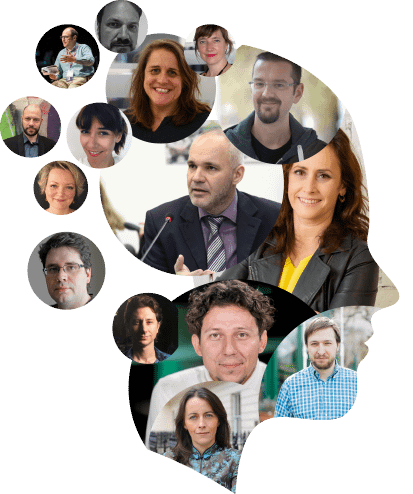As we have noted at EU DisinfoLab, disinformation has many faces (manifestations, motives, and tools). It is only logical that the response to disinformation must have many faces as well. In this project, we seek to present a panorama of the different kinds of actors responding to disinformation today – from broadcast journalists to open source investigators to election observers to technology developers. In the report that follows, we interview 14 actors from across this emerging civil society ecosystem.
It is important to note that many of the actors interviewed do not see themselves as responding to disinformation per se. We use the term ‘disinformation’ as a shorthand for the many illnesses in our information ecosystem (what First Draft, whom we interview here, refers to as “information disorders”). The problem for us encompasses disinformation and misinformation, mistrust in journalism and the weaknesses or deficits in existing media, the business model behind clickbait and disinforming content, algorithmic targeting, and other opaque mechanisms in our digital information architecture.
This report is necessarily limited in scope. The interviews here represent a snapshot or cross-section of an expanding network of individuals and initiatives. Still, the findings we share are broadly representative of this space. We conducted qualitative, semi-structured interviews in order to understand how these initiatives were created and have evolved over time, and to examine in detail the difficulties these actors face in terms of sustainability, security, and impact. At the same time, these actors serve as examples of what we hope to see more of. They exhibit new types of expertise – from digital forensics, to crowdsourced research, to journalism-classroom partnerships. Though they might seem unusual today in their techniques or organisational structures, we believe that they also point towards the future of civil society engagement against disinformation.
Despite the critical work they do, many of these actors feel alone. They struggle to make their voices heard by policymakers and by the tech companies at the heart of our information ecosystem. Their long-term security and sustainability are not assured. In order to effectively counter disinformation challenges, we need an ambitious framework to sustain and further develop this civil society network. Following these interviews, we make several recommendations which we feel are necessary to safeguard a resilient, decentralized civil society ecosystem.
Last, it should be noted that this project is a view from the inside. These discussions were framed by our own experience at EU DisinfoLab, as a relatively young, small NGO, finding our way in this new environment. We consider the people featured here to be our colleagues, allies, and friends. We admire them, we learn from them, and we are continually grateful for their work and their collaboration.
Despite the critical work they do, many of these actors feel alone. They struggle to make their voices heard by policymakers and by the tech companies at the heart of our information ecosystem



